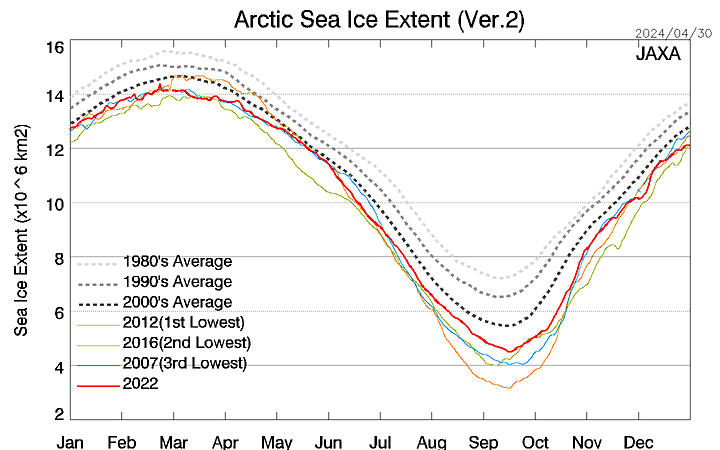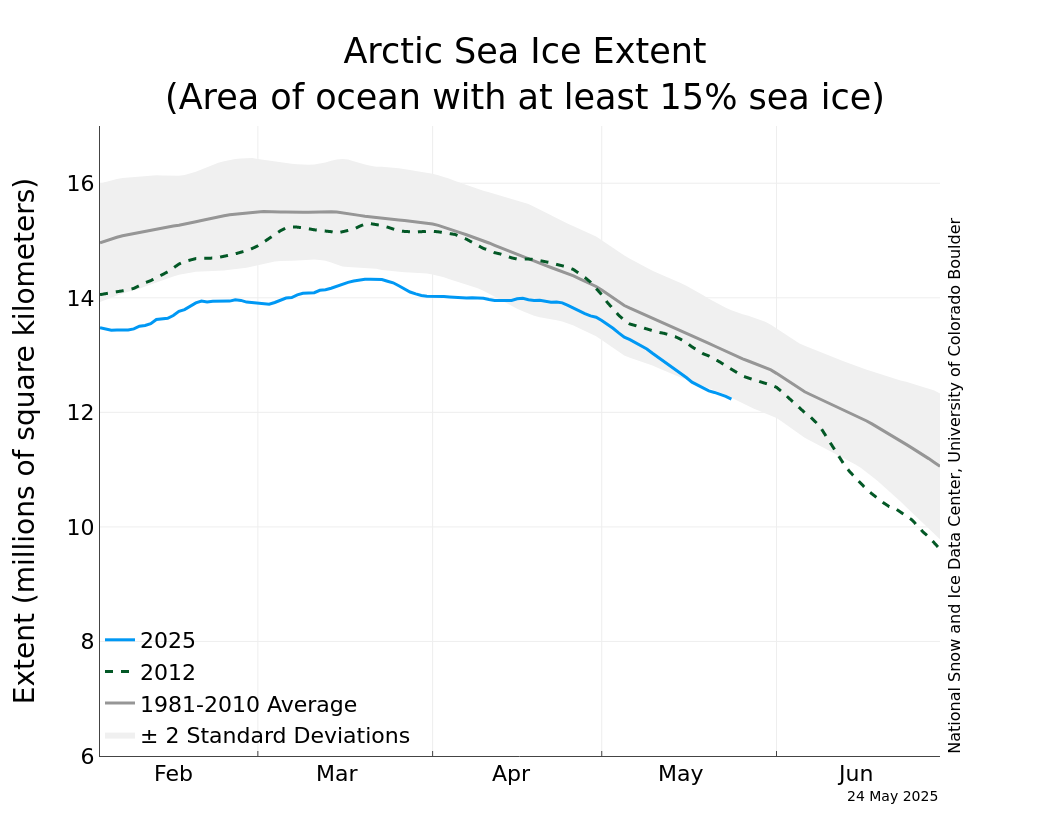Old Rocks
Diamond Member
jc, you are really a dumb sad ****. The king tides have been higher every decade. And will continue to be higher every decade until many areas presently inhabited will have to be abandoned.
Follow along with the video below to see how to install our site as a web app on your home screen.
Note: This feature may not be available in some browsers.
Do you deny the EU scientific ruling that water does not prevent dehydration? They did. Per your link:
"The claimed effect is “regular consumption of significant amounts of water can reduce the risk of development of dehydration and of concomitant decrease of performance”. The target population is assumed to be the general population. Dehydration is a condition of body water depletion. The proposed risk factors are measures of water depletion and thus are measures of the disease. The proposed claim does not comply with the requirements for a disease risk reduction claim pursuant to Article 14 of Regulation (EC) No 1924/2006."
And that poster will continue to make that stupid claim, no matter what evidence is presented.Do you deny the EU scientific ruling that water does not prevent dehydration? They did. Per your link:
"The claimed effect is “regular consumption of significant amounts of water can reduce the risk of development of dehydration and of concomitant decrease of performance”. The target population is assumed to be the general population. Dehydration is a condition of body water depletion. The proposed risk factors are measures of water depletion and thus are measures of the disease. The proposed claim does not comply with the requirements for a disease risk reduction claim pursuant to Article 14 of Regulation (EC) No 1924/2006."
I see. Rather than educating yourself, doing some reading aiming at understanding the content with which you've been generously provided, you'd rather repeat the daft claim you've been shown to be daft.
Article 14
Reduction of disease risk claims
1. Notwithstanding Article 2(1)(b) of Directive 2000/13/EC, reduction of disease risk claims may be made where they have been authorised in accordance with the procedure laid down in Articles 15 to 18 of this Regulation for inclusion in a Community list of such permitted claims together with all the necessary conditions for the use of these claims.
2. In addition to the general requirements laid down in this Regulation and the specific requirements of paragraph 1, for reduction of disease risk claims the labelling or, if no such labelling exists, the presentation or advertising shall also bear a statement indicating that the disease to which the claim is referring has multiple risk factors and that altering one of these risk factors may or may not have a beneficial effect.
So, since dehydration may be caused by factors other than insufficient consumption of water, and this is not being pointed out, the claim is not in compliance with article 14, as detailed above.
You may now resume regurgitating the daft. Please proceed.
So the answer is no that water retreated and it did so because it was a storm that supplied that water and not ice melt to sea level. Tsk tsk that makes you a liar.jc, you are really a dumb sad ****. The king tides have been higher every decade. And will continue to be higher every decade until many areas presently inhabited will have to be abandoned.
jc, you are really a dumb sad ****. The king tides have been higher every decade. And will continue to be higher every decade until many areas presently inhabited will have to be abandoned.
The king tides have been higher every decade. And will continue to be higher every decade until many areas presently inhabited will have to be abandoned.
Now that is an exceptionly stupid question. You know damned well that the sea level is not going to stabalize even in our grandchildren's lifetime. Given the time of residence of the GHGs in the atmosphere, what we can hope to do is prevent a much worse situation.jc, you are really a dumb sad ****. The king tides have been higher every decade. And will continue to be higher every decade until many areas presently inhabited will have to be abandoned.
How far do we have to reduce man-caused CO2 emissions to make them go back down again??
Now that is an exceptionly stupid question. You know damned well that the sea level is not going to stabalize even in our grandchildren's lifetime. Given the time of residence of the GHGs in the atmosphere, what we can hope to do is prevent a much worse situation.jc, you are really a dumb sad ****. The king tides have been higher every decade. And will continue to be higher every decade until many areas presently inhabited will have to be abandoned.
How far do we have to reduce man-caused CO2 emissions to make them go back down again??
What's funny is NOAA says nothing about rising oceans as a reason sea levels change.Thanks for the link!Here is a very good map of sea level change in the US and Europe.
Sea Level Trends - NOAA Tides and Currents
Why does Sea Level change over time?
There are a number of factors that contribute to long and short-term variations in sea level. Short-term variations generally occur on a daily basis and include waves, tides, or specific flood events, such as those associated with a winter snow melt, or hurricane or other coastal storm. Long-term variations in sea level occur over various time scales, from monthly to several years, and may be repeatable cycles, gradual trends, or intermittent anomalies. Seasonal weather patterns, variations in the Earth's declination, changes in coastal and ocean circulation, anthropogenic influences (such as dredging), vertical land motion, and the El Niño Southern Oscillation are just a few of the many factors influencing changes in sea level over time. When estimating sea level trends, a minimum of 30 years of data are used in order to account for long-term sea level variations and reduce errors in computing sea level trends based on monthly mean sea level. Accounting for repeatable, predictable cycles, such as tidal, seasonal, and interannual variations allows computation of a more accurate long-term sea level trend.



Sea Ice coverage 15% in the Arctic has regained the 2STD region. Melt has flat lined in the Arctic with the cold ocean flows that have returned... Looking for major Ice build up in the Arctic this year. Many regions are now gaining ice mass due to low temperatures and significantly reduced melt.

Mother nature kicks alarmists in the teeth.... CO2 isn't driving anything!
Is sea level rising?What's funny is NOAA says nothing about rising oceans as a reason sea levels change.Thanks for the link!Here is a very good map of sea level change in the US and Europe.
Sea Level Trends - NOAA Tides and Currents
Why does Sea Level change over time?
There are a number of factors that contribute to long and short-term variations in sea level. Short-term variations generally occur on a daily basis and include waves, tides, or specific flood events, such as those associated with a winter snow melt, or hurricane or other coastal storm. Long-term variations in sea level occur over various time scales, from monthly to several years, and may be repeatable cycles, gradual trends, or intermittent anomalies. Seasonal weather patterns, variations in the Earth's declination, changes in coastal and ocean circulation, anthropogenic influences (such as dredging), vertical land motion, and the El Niño Southern Oscillation are just a few of the many factors influencing changes in sea level over time. When estimating sea level trends, a minimum of 30 years of data are used in order to account for long-term sea level variations and reduce errors in computing sea level trends based on monthly mean sea level. Accounting for repeatable, predictable cycles, such as tidal, seasonal, and interannual variations allows computation of a more accurate long-term sea level trend.
Must have been an oversight.
There is some more of LaDumbshit's usual deranged, anti-science bullshit with no connection to reality. Sea levels are rising all around the world, threatening coastal cities and infrastructure, aquifers and agriculture, many islands, and numerous historical treasures.All you need to know about "sea level rise" is that the warmers have no real sea level rise, which is why they are deceitfully trying to peddle islands on the lip of the Pacific Ring of Fire as sinking from sea level rise, when in reality they are sinking because the tectonic plate to which they are attached is being pushed under the adjacent plate.
FRAUD